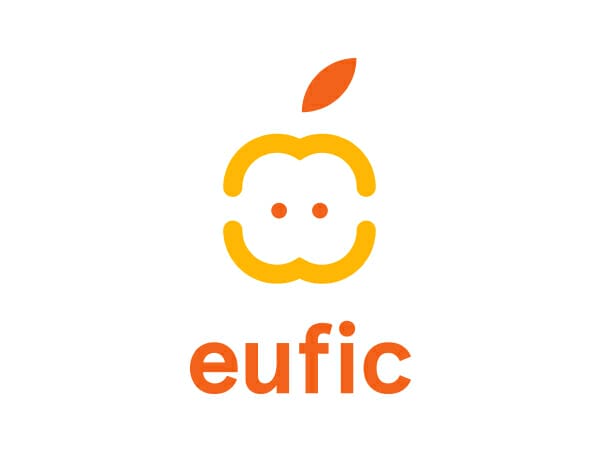SWEET Project consortium member Edith Feskens weighs in
Recent news stories have reported that the low-calorie sweetener erythritol has been linked to an increased risk of heart attack and stroke. Sweeteners, including erythritol, are used in foods to replace sugar and add a sweet taste without (or with very few) calories. So, does this new data suggest we should avoid products containing erythritol? Before doing so, here are a few things to keep in mind when reading the headlines.
The study behind the headlines
The study behind the news was carried out by researchers at the Cleveland Clinic in the US, who aimed to study the potential link between the sweetener erythritol and the risk of heart attack and stroke. Erythritol is one of a group of substances called sugar alcohols that is found naturally in fruit and vegetables. It can also be produced industrially and used a low-calorie sweetener. It has a higher sweetening intensity and lower calorie content than table sugar which makes it attractive for the use as a sugar substitute, for example for people who want to lose weight or for patients with type 2 diabetes.
The research was carried out in several parts. Professor Edith Feskens, professor of Global Nutrition at Wageningen University and partner of the SWEET project, which is developing and reviewing evidence on the long-term health benefits and risks of sweeteners, explains:
“The first part was an observational study conducted in a group of 1157 patients with a history of heart disease. The research found that those patients with the highest concentrations of erythritol in their blood had a higher risk of developing major coronary events (e.g. heart attack) or stroke over the three year period the study followed them compared to patients with the lowest concentrations of erythritol in their blood. To confirm their findings, the researchers reproduced this study in two similar populations groups, one from Europe and another from the US.”
In the second part of the study, the scientists carried out several experiments that showed that similar blood concentrations of erythritol could increase platelet aggregation (one of the mechanisms that lead to blood clotting) in human blood samples and the development of blood clots in mice.
Finally, the researchers studied what happened to erythritol levels in the blood of a small group of 8 healthy people after they drank a drink containing 30 g of erythritol (equivalent to what would be found in 1-2 cans of low-calorie soft drink or a pint of “keto-friendly” ice cream). They found that the volunteers continued to have elevated levels of the sweetener in their blood for up to 2 days. Yet, the researchers did not look at disease outcomes for this part of the study.
What to keep in mind when reading the news
The main part of the study is an observational one and, therefore, cannot prove that erythritol is the cause of the increased health risks.
The researchers did supplement their observational study with experiments designed to try and identify plausible mechanisms by which high concentrations of erythritol could lead to increased blood clotting risk. While the combination of observational and experimental work is a strength of this study, it is still not enough to prove causation. The experimental studies only showed that, in a test tube and mice, erythritol increases blood clot formation and that dietary consumption of erythritol in humans raises their blood levels of erythritol. No conclusions can be drawn whether dietary erythritol actually increases the risk for developing major coronary events. Further research is needed.
The research could not distinguish between naturally-occurring erythritol and that which may have come from food.
<“The study authors do not present data on actual blood levels in the participants in the observational study, so it is difficult to know how these compare with levels found naturally in humans. This is important as erythritol is a naturally-occurring sugar alcohol, which is increased in people who are at risk of obesity, type-2 diabetes and cardiovascular disease. In this sense, it’s not surprising that elevated levels were found in the group of people in this study” Professor Feskens explains.
The study population may not be representative of the general population.
The participants in the observational study were patients undergoing a cardiac risk assessment. A large proportion of these participants were diagnosed with diabetes, high blood pressure and coronary artery disease and, therefore, likely to be at higher risk for heart disease and stroke. This means that the findings (i.e., having high levels of erythritol in the blood) may not be generalisable to the general population.
What do the authorities say?
- In the European Union, erythritol is authorised for use as a sweetener in foods such as jam, jelly, chewing gum, and savoury sandwich spreads, based on the 2003 scientific opinion of the European Food Safety Authority (EFSA).
- In 2015, the European Food Safety Agency (EFSA) issued a scientific opinion concluding that erythritol is also safe to use in non-alcoholic beverages up to a maximum level of 1.6%.
Find more information about sweetener in general in the EUFIC article Sweeteners: Addressing Common Questions and Debunking myths.
a href=”https://www.eufic.org/en/newsroom/article/in-the-news-do-artificial-sweeteners-increase-the-risk-of-heart-attacks-and-stroke” target=”_blank”>Read the original article on the EUFIC website.
References
- Witkowski M et al. (2023) The artificial sweetener erythritol and cardiovascular event risk. Nature Medicine https://doi.org/10.1038/s41591-023-02223-9
- Scientific Committee on Food (2003) Opinion on the Scientific Committee on Food on Erythritol. Available online at https://ec.europa.eu/food/fs/sc/scf/out175_en.pdf. Accessed 6 March 2023.
- European Food Safety Authority (2015) Scientific Opinion on the safety of the proposed extension of use of erythritol (E 968) as a food additive. EFSA Journal 12(3):4033.

